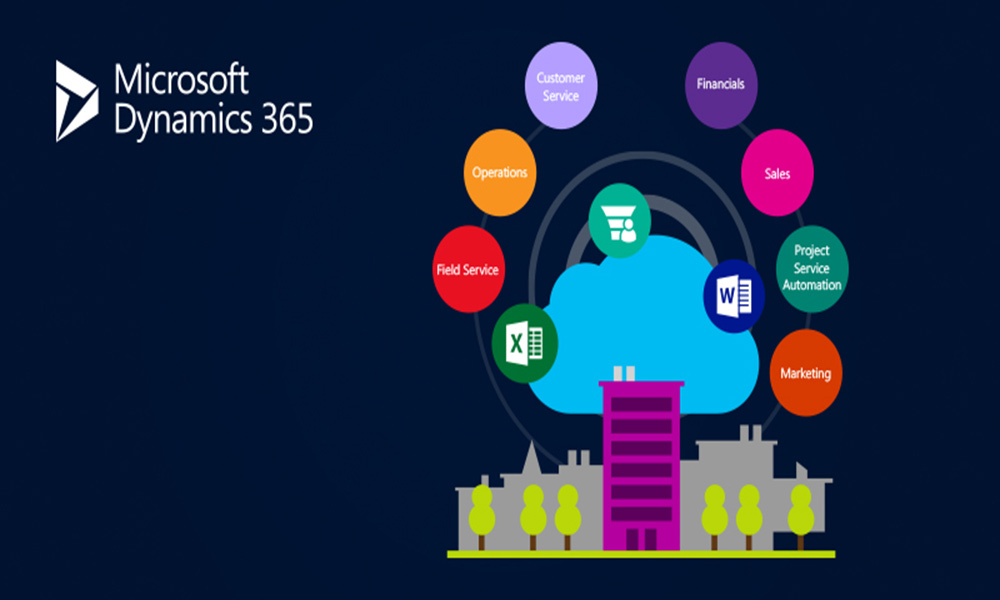Table of Contents
What exactly is Dynamics 365 in a few of words?
ERP and customer relationship management (CRM) are two primary topics covered by the Dynamics foundation. In D365 Finance & Operations, business process management (ERP) is handled. This includes finance, which supports financial processes in an organization varying from budgetary control and invoice handling to accounting, and operations, which endorses the supplier base i.e. production, stock control, and logistics and distribution. Customer Experience is responsible for Customer Relationship Marketing (CRM), which comprises numerous modules inside sales, advertising, services and technologies, and other departments.
You may use this section to handle your sales and marketing operations directed towards your clients. In addition to ERP and CRM, there are a plethora of fundamental parts that must be in place in order for Dynamics 365 to serve as the greatest possible basis for your digitalization efforts.
Customers are at the center of any company’s operations. Successful companies understand the need of engaging with their consumers, not just during the sales process, but also after the sale, when the client requires service and support from them. Customer Relationship Management, sometimes known as CRM, is the general term used to describe this process. As the significance of customer relationship management (CRM) has risen in recent years, so have the skills and tools required to handle it.
Customer service has emerged as the new success measure, and Microsoft is well aware of this. You must have the appropriate CRM business solution in place in order to increase your sales productivity. Using Dynamics 365, businesses can revolutionize their sales processes and connect the whole customer experience into a single unified platform. Dynamics 365 is the most comprehensive customer engagement solution available in the cloud.
What Is the Function of a todays CRM System?
In every customer information system, including CRM software, the administration of contacts is the most important function. The goal of a customer relationship management system (CRM) is to record and manage all data for every kind of interaction, from leads to business partners.
The Customer Engagement strategy is comprised of the following departments: sales, customer service, field service, project service automation, and marketing. Selling connections with real and personal involvement is made possible by the Dynamics 365 application stack, which works together to empower salespeople. Let’s check some of the benefits of Dynamics 365 Managed Services.
-
Increase the possibilities of Microsoft D365 environment
The Power Platform allows you to link hundreds of data sources together using a library of connectors and the Microsoft Data verse, which is available as part of the Power Platform. By consolidating your data into a single source of truth (SSOT), you may discover insights and personalize and expand your D365 capabilities via the use of Power Apps and Automate, among other things.
-
Begin your D365 adventure
Dynamics 365 Managed Services provides you with a single, dependable point of entry to help you accelerate and support your D365 and Power Platform journey. They can either advise you and construct everything from the ground up, or they may build on top of your existing solution and add functionality. As well as integrating, operating, and supporting the necessary Microsoft Dynamics systems and processes, they can assist you in a variety of ways.
-
Reduce time to market
It is possible to create the applications and features that your firm needs using the Dynamics 365 Power Platform. You may easily and quickly turbocharge your workers’ work processes, equip them to drive digital transformation, and encourage new methods of employing the Power Platform in this manner. This reduces the amount of time it takes to get a product to market and removes some of the load on your IT staff.
-
Maintain Control Over Any Relationship
It is able to control all of your interactions and operations via linked applications, with data saved in a shared data platform that is scalable to accommodate your expansion.
-
Access correct incorporation
Client management solutions, such as customer relationship management (CRM) systems, integrate all of the data from your sales leads and clients in one location. A customer relationship management system (CRM) consolidates all interactions (form fills, phone calls, emails, messages, and presentations), documentation, quotations, purchases, and activities related to each prospect and client in one place. Every member of your team can access the correct information at the right time–whether to complete a sale or provide great service.
For the purpose of increasing total revenues, Dynamics 365 Managed Services guarantees that every stage of the relationship with customers is seamless and efficient. The program collects information about customers from a variety of sources. As a result, customer relationship management (CRM) systems collect precise information on general purchase history, personal information, and even buying behavior trends
Follow – https://viraldigimedia.com for More Updates